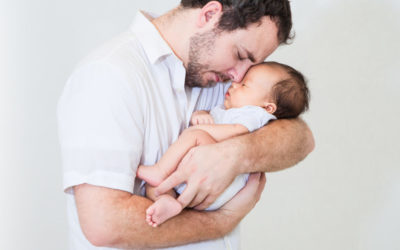Quick Hits
Daily brief research updates from the cognitive sciences

Having more children and late life cognition is not something that is generally researched. There are more obvious avenues such as diet, education, exercise, or socio-economic factors. That’s also why this recently published study caught my attention.
So, (to put it bluntly) can having more children make you stupider in your old age?
It seems so, but first let’s understand the limitations and why this could be the case.
First, this study, out of Columbia, analysed data from the Survey of Health, Aging and Retirement in Europe (SHARE) to look at the extent to which having three or more children, versus two children, affects late-life cognition. SHARE collects representative data from 20 European countries and in this case they were over 65 and had at least two biological children.
So, what did they find – well, yes, as I said they found that having three or more children, compared to two, reduced cognitive ability in later life – this was equivalent to 6.2 years of aging. That is a pretty large effect. Of note is that they crunched the numbers to indicate causation rather than correlation.
This effect was worst in northern European countries likely because in these countries having more children does not confer any additional resources or benefits.
What do they consider the reason for this:
-
- Having additional children incurs significant costs which can lead to a decreased quality of life or dropping below the poverty line.
- Having additional children lowers women’s labour market participation. This further lowers income but also working confers cognitive benefits.
- Having children is stressful and can have longer impacts on health and mental health
Of note is that it seems that there is no additional social benefit from having three or more children over two – social contact does not increase. These effects were much larger in the North of Europe than the South for multiple reasons such as cost of living and social structures.
The study didn’t explore other variations such as comparison to having only one child or none – they recommend this for future studies. It is also important to have this knowledge with people living ever longer and late life health and cognitive functioning becoming ever more important.
So, all in two children is enough – and that is exactly what I have. Phew!

Andy Habermacher
Andy is author of leading brains Review, Neuroleadership, and multiple other books. He has been intensively involved in writing and research into neuroleadership and is considered one of Europe’s leading experts. He is also a well-known public speaker speaking on the brain and human behaviour.
Andy is also a masters athlete (middle distance running) and competes regularly at international competitions (and holds a few national records in his age category).
Reference
Eric Bonsang, Vegard Skirbekk.
Does Childbearing Affect Cognitive Health in Later Life? Evidence From an Instrumental Variable Approach.
Demography, 2022
DOI: 10.1215/00703370-9930490
More Quick Hits
Disagreements Improve Team Perception
We might assume that agreement would be high in high-performing teams – this study shows the opposite…
Brain Cells Adapt to Help You Stay Awake
Falling asleep is a funny thing – you don’t need to think about it when it happens but can cause many people who can’t incredibly frustration…
Dad Brain is Real
We know that mothers go through multiple physical and psychological changes after birth (and before) including change in brain structures but what about fresh fathers?
Mask-Wearing Makes You Better Behaved
This is a fascinating study that shows that wearing masks changes behaviour in subtle but important ways…
Coffee Can Help You Live Longer
Yes, that is good news for you (us) coffee drinkers. This supports plenty of more recent studies which have shown the health benefits of coffee…
Big Kids Die Earlier!
Before you panic – the conclusion in the title is based on research into mice not human beings – but there could potentially be some important insights for us human beings as well.






